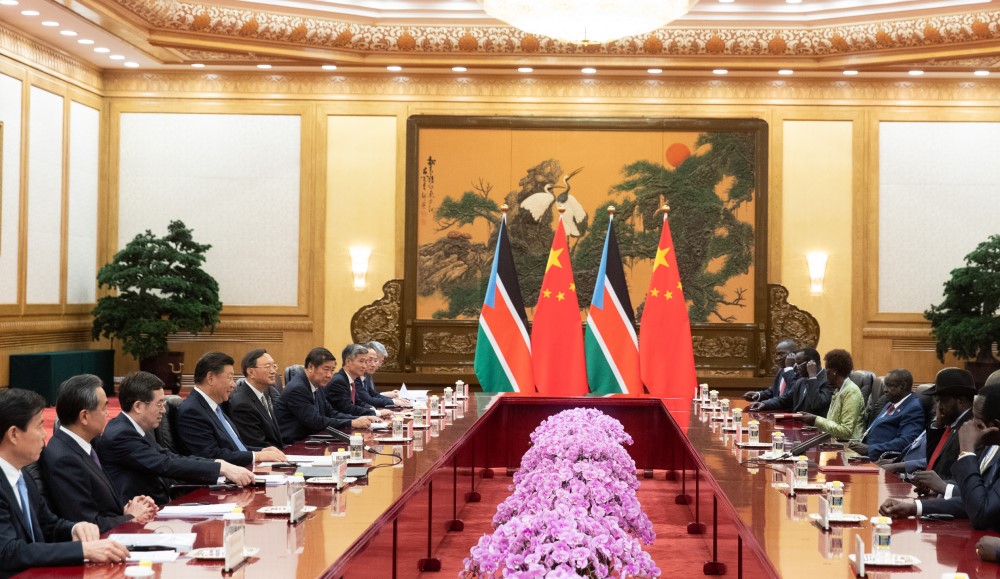
With a renewed five-year
mandate as General Secretary of the Central Committee of the Chinese Communist Party, Xi Jinping has re-emerged on the international stage. His revamped foreign policy team is headed by the recently promoted politburo member and director of Chinese Communist Party Central Committee Foreign Affairs Commission Office Wang Yi, and the new foreign minister Qin Gang. Also, foreign ministry spokesman Zhao Lijian, once China’s most strident ‘
wolf warrior’, has been
moved to a less visible position, suggesting that China would like to project a more conciliatory international image.
A new dimension to this push is China’s apparent desire to involve itself in resolving or mediating conflicts. China’s interest in mediation dates to Xi’s rise to power in 2012 and the launch of the Belt and Road Initiative (BRI). Prior to this, China was generally reluctant to get involved in conflict resolution, except in the runup to the 2008 Beijing Olympic Games, when gaining visibility was a priority.
Following the launch of the BRI, China stepped up its public mediation efforts with a focus on South Asia, the Middle East and East Africa, all regions
home to significant state-owned investments.
Initially, China wanted to ensure security and stability for its BRI projects and the Chinese companies building them. However, it no doubt also welcomed the opportunity to burnish its international credentials as a peacemaker, especially while then-US President Donald Trump pushed the rhetoric of putting American interests first.
Since Xi was reconfirmed as party head last October, China has shifted into higher gear. Two initiatives stand out.
In March this year, China
brokered talks between Iran and Saudi Arabia which saw the two countries restart diplomatic relations, helping to ease tensions in the region.
The deal was a diplomatic victory for China but was seen by some as primarily a geopolitical play. Specifically, the talks were also motivated by China’s concern with securing its oil imports from the region. They were also seen as a challenge to the US, which has sought to isolate Iran economically through sanctions.
Xi’s visit to Moscow, also in March, was another example of the realities of ‘China the peacemaker’. During the visit, Xi and Russian President Vladimir Putin discussed China’s 12-point peace plan for the war in Ukraine, and issued a
joint statement that was clearly
biased to reflect Russia’s interests.
After making reference to respect for the UN Charter and international law, the statement referred to ‘the legitimate security concerns of all countries’, an ambiguous concept used by Russia to disguise its territorial interests. It also made no reference to ‘sovereignty and territorial integrity’, whose violation by Russia has been widely condemned.
Two further developments are worth noting.
The first is that in recent years, China’s foreign ministry has
assigned a number of special envoys to global ‘hot spots’, from the Middle East and the
horn of Africa to the Korean Peninsula and the Pacific Islands. The special envoys are a significant addition to China’s diplomatic influence toolbox, and have in several instances allowed China to take the lead in resolving conflicts.
The second is China’s February announcement of the opening in Hong Kong of a preparatory office for the establishment of an International Organization for Mediation (IOMed), ‘
a new platform for peaceful resolution of international disputes’.
At the launch, foreign minister Qin Gang noted that there is currently no international organisation tasked specifically with mediation. China’s proposal, which has received little media attention beyond Beijing and Hong Kong, clearly seeks to fill this gap. So far,
nine countries have signed up—Algeria, Belarus, Cambodia, Djibouti, Indonesia, Laos, Pakistan, Serbia and Sudan—all friends of China with BRI investments.
So, what should leaders make of China’s expanding role in peacemaking?
On the one hand, China’s mediation initiatives have mainly been designed to address its own economic and strategic interests, including to counterbalance bouts of
sabre-rattling by officials over Taiwan. Also, deeper Chinese involvement in mediation may raise issues related to the
non-interference in the internal affairs of other countries, a cornerstone of China’s foreign policy since the 1955 Bandung Conference.
On the other, China’s large network of BRI countries may increasingly be willing to consider China as a conflict mediator. A European diplomat noted that it may try to act as ‘a
spoiler of Western initiatives’, as Russia has, while other countries have
welcomed Beijing’s mediation efforts as a sign of its willingness to assume broader international responsibility.
The IOMed is currently a low-key proposal. However, it is worth recalling the modest beginnings of the Asian Infrastructure Investment Bank (AIIB), another China-driven initiative to provide an alternative avenue of multilateralism. A decade ago, the AIIB was simply an idea on the drawing board in China’s Ministry of Finance, but today the AIIB is a credible multilateral bank, with a triple-A credit rating and over a hundred member countries. It is located in Beijing with a Chinese president and China as its largest shareholder that holds a veto over key decisions.
Given China’s attempts to restyle itself as a peacemaker, defence leaders and diplomats leaders should follow this space closely. We should not dismiss the notion that something similar could happen in the field of peace mediation.
 Print This Post
Print This Post